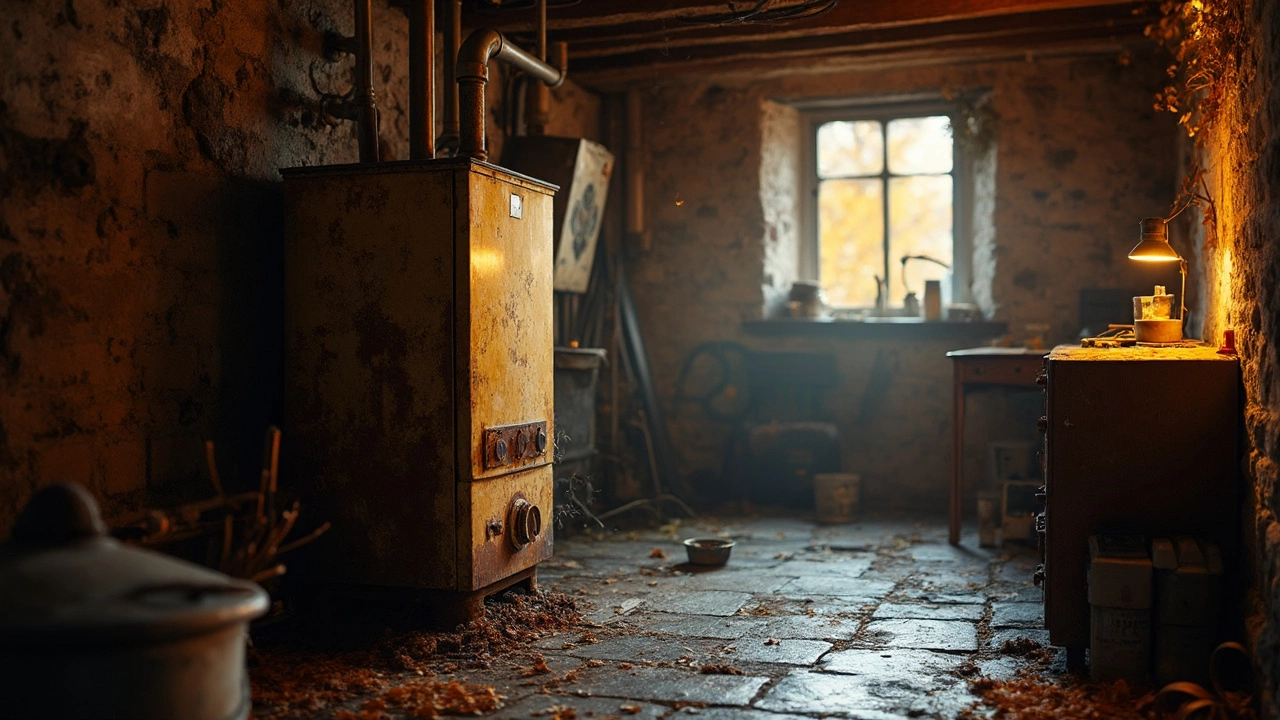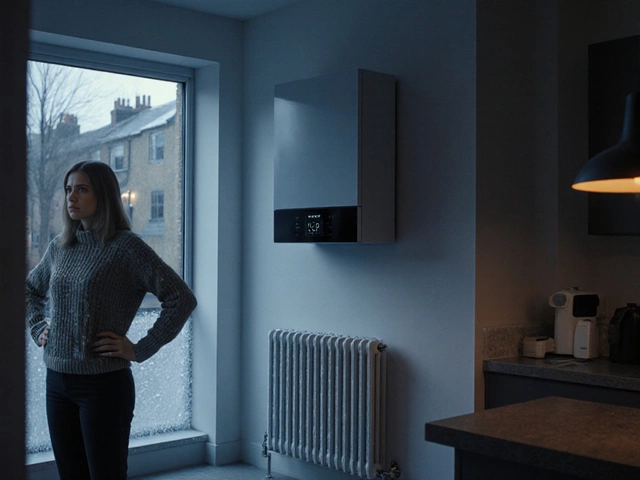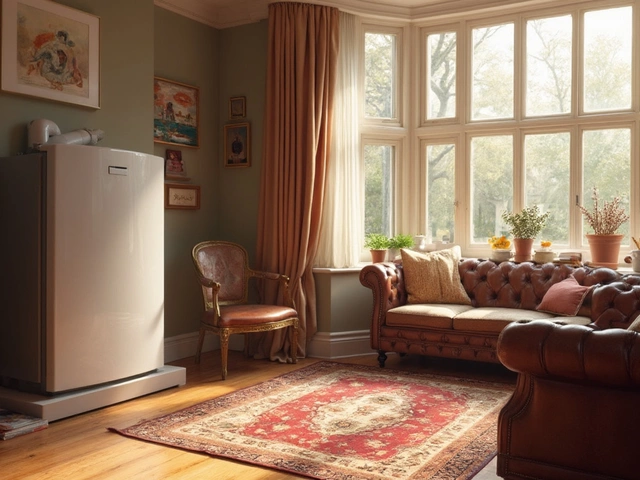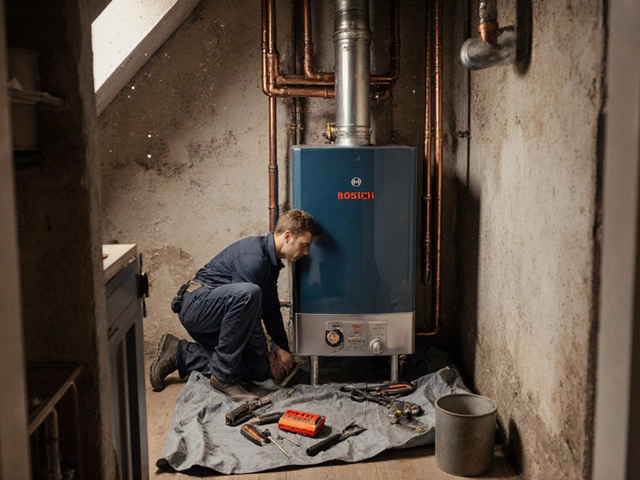Is your boiler as old as some of the pizza delivery places you used to love? If it's hitting the 15-year mark, it might be time to start thinking about a replacement. You might be wondering why, though. Well, let’s face it, boilers age, and when they do, they might not perform like they used to.
Boilers tend to lose their efficiency over time, especially once they cross the decade mark. A fifteen-year-old boiler is almost like an old pair of shoes, not quite as comfy or functional anymore. Energy efficiency is a big thing to think about here. Older models just don’t heat your home as efficiently, meaning you’re likely spending extra cash on gas or electricity every month.
And it’s not just about the money. There’s the safety angle too—an old boiler can develop leaks or issues that might go unnoticed until it’s too late. Nobody wants unexpected cold showers or, worse, a carbon monoxide leak! That’s a real game-changer.
So how do you know if it’s worth it to swap out the old beast in your basement? Let’s break down what you’re dealing with in terms of costs, savings, and things like energy efficiency, and safety risks. By the end, you should have a pretty solid idea of what the best move is for your home and wallet.
- Understanding the Age of Your Boiler
- Energy Efficiency: The Key Factor
- Costs and Savings: What to Expect
- Safety and Potential Risks
Understanding the Age of Your Boiler
So, how old is your boiler actually? It might seem like just a number, but when it comes to a boiler replacement, it’s a big deal. If your boiler was installed around 15 years ago, it’s nearing the end of its typical lifespan. Most boilers last between 10 to 15 years before their efficiency drops significantly.
Checking Your Boiler’s Age
First things first, you need to find out the exact age of your boiler. If you’re not quite sure when it was installed, check the boiler documentation if you still have it. No luck there? Have a look at the serial number on the boiler itself—it usually tells you the date it was manufactured.
If you don’t fancy playing detective with the serial number, consider calling the manufacturer or the company that installed it. They can usually help you zero in on the installation date pretty quickly.
Signs Your Boiler is Past Its Prime
Older boilers have a few telltale signs that might be screaming “replace me!” louder than others. Is your home not as warm as it used to be? An ancient boiler might not be distributing heat evenly. Frequent breakdowns are another solid hint. If you’re calling the repair folks more than twice a year, that’s a big red flag.
- Rising energy bills: Have you noticed your bills creeping up over time? An old boiler guzzles more energy without giving you the warmth you need.
- Suspicious noises: Banging, clunking, or gurgling sounds are not normal for a healthy boiler. These noises could mean internal parts are on the fritz.
Energy Efficiency Concerns
A 15-year-old boiler isn’t just slacking on warmth, it’s probably an energy hog too. Modern boilers are much more efficient, some reaching up to 90-95% efficiency compared to the 60% you might get from an older model. That’s a huge difference that shows up on your energy bills.
With new energy-efficient models, you’re not only doing your bit for the planet but also for your pocketbook. Imagine slashing your energy bills by up to 30%. Sounds good, doesn’t it?
Energy Efficiency: The Key Factor
When talking about boilers, energy efficiency is where the rubber meets the road. A 15-year-old boiler might be wasting more energy than it's saving, and that's not great for either your wallet or the planet.
A significant consideration here is the efficiency rating. Modern boilers run on condensing technology, which is a fancy way of saying they recover more heat from the gases they burn. This means they can achieve efficiency ratings of over 90%, whereas older models might be stuck somewhere around 70-75%, at best. That’s a big jump!
Why Efficiency Matters
High efficiency leads to lower gas or electricity bills because your old boiler has to work less to heat the same amount of water. If your heating bills are giving you nightmares, this could be the reason. It's not just about money; efficient boilers also have a smaller carbon footprint, making you a bit of an environmental hero.
Spotting the Inefficiencies
- Cold Spots: If some rooms just don't get warm even when the heating's on full blast, your boiler might be struggling.
- Inconsistent Heating: If you’re living in a house of cold snaps and surprise hot flushes, something’s up.
- Frequent Repairs: Those call-outs to the repair guy add up. Frequent breakdowns can be a sign your boiler's losing it.
The Pay-Off
Upgrading to a new, more efficient model can seem pricey. However, consider this: the money you save on your energy bill helps pay off the new boiler over time. Think of it as an investment rather than an expense.
Crunching the Numbers
Here's a snapshot of potential savings when moving from an older boiler to a new one:
| Boiler Type | Efficiency | Annual Savings (£) |
|---|---|---|
| Old Non-Condensing Boiler | 70% | 0 |
| New Condensing Boiler | 90%+ | 200-300 |
Investing in a more efficient boiler isn’t just good for you — it’s better for the environment and can help bump up your property’s value. So, when thinking about replacement, energy efficiency definitely deserves front-row consideration.

Costs and Savings: What to Expect
So, what exactly are you looking at in terms of cost when considering a boiler replacement? Well, replacing a 15-year-old boiler is a bit like playing the long game—you have the upfront cost to think about, but it pays off in the end.
Initial Expenses
The initial outlay for a new boiler, depending on the model and features, usually ranges from £1,500 to £4,000. It's a chunk of change for sure, but it could be your ticket to lower bills and fewer headaches. Modern boilers are more efficient, meaning you'll likely see those monthly energy expenses drop.
Long-Term Savings
What's in it for you financially? First, newer boilers are way more energy-efficient, which can save you up to 30% on energy bills annually. If you’re currently spending £1,000 a year on heating, you might cut that down to £700. Sometimes it's best to look at those savings over a few years to get the real picture.
Added Value
There’s more to it than just energy bills. Installing a new boiler can increase your home’s value. Potential buyers are into the idea of saving on utilities, and a modern energy-efficient boiler is a big plus. Plus, with a new system, you’ll likely face fewer repair costs, saving you even more in the long run.
The Safety Factor
Older boilers can be more prone to problems that lead to costly fixes or worse. Consider it an investment in peace-of-mind. You’re reducing the risk of unexpected issues, saving you from emergency call-outs that can often cost an arm and a leg.
The decision isn't just about the money you're spending today—it's about the savings and perks you'll get tomorrow. If the numbers add up, it might be time to say goodbye to that old thing rattling away in the basement.
| Cost Aspect | Expected Range |
|---|---|
| Initial Replacement Cost | £1,500 - £4,000 |
| Annual Energy Savings | Up to 30% |
Safety and Potential Risks
When it comes to your trusty boiler, safety should always be a top concern. An aging boiler poses potential risks, and understanding these can help you make smarter choices for your home. We all want to feel cozy and safe, right?
Common Safety Concerns
One of the scariest risks is carbon monoxide leaks. A failing boiler can emit this odorless gas, which is dangerous even in small amounts. Make sure you have a working CO detector nearby. A regular inspection can often catch these issues before they become serious.
Leaks aren’t just limited to gas either. Water leaks from an old boiler can cause damage to your home. Worst case, a significant leak might flood part of your home, leading to expensive repairs.
"It's crucial to have your boiler checked regularly. Safety is not an option; it's essential," said Paul Johnson, a leading boiler safety expert.
Health Impact and Maintenance Risks
Boilers that aren’t functioning correctly can impact the air quality in your home. This affects everyone, especially those with respiratory issues. Keeping the boiler well-maintained helps prevent these problems.
- Regular inspections help prevent unexpected breakdowns.
- Servicing ensures efficiency and safety are top-notch.
- Repairs or replacement should be done by certified professionals.
The Financial Angle
While it might seem like a big upfront cost, investing in a new boiler could save you from massive repair bills due to damages an old boiler might cause. Not to mention, the peace of mind comes as a free extra.
In short, make sure your boiler replacement aligns with your safety priorities. Know the risks, weigh the choices, and keep your family safe and warm.




